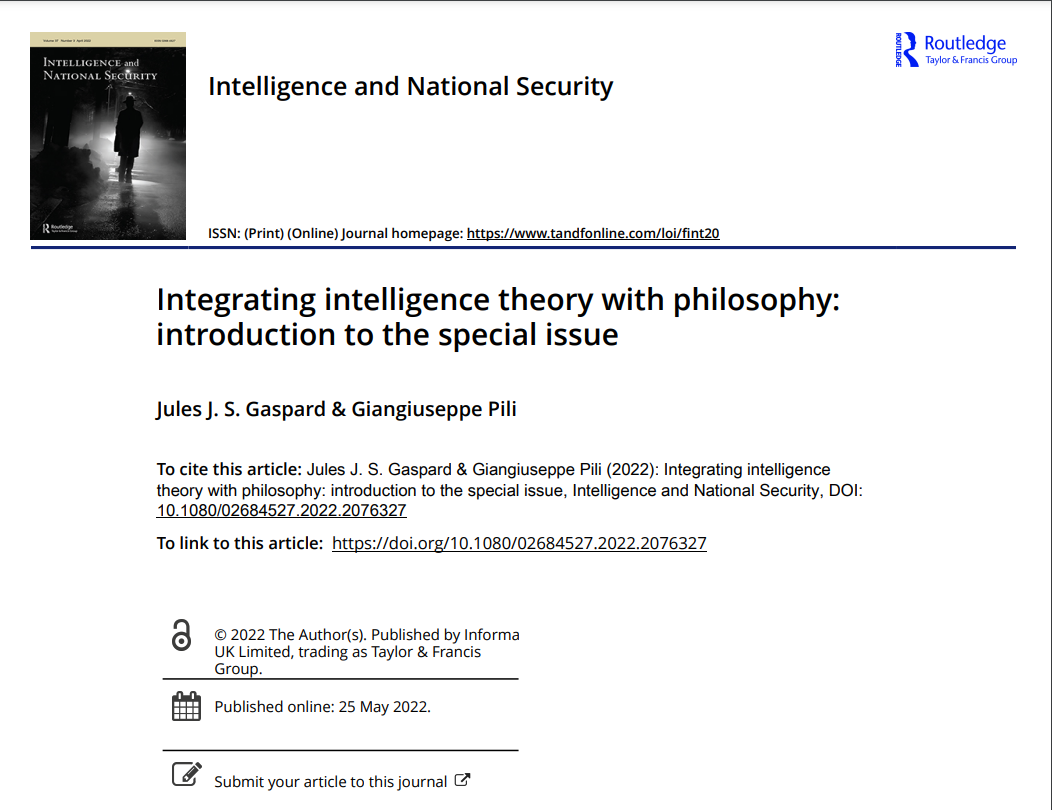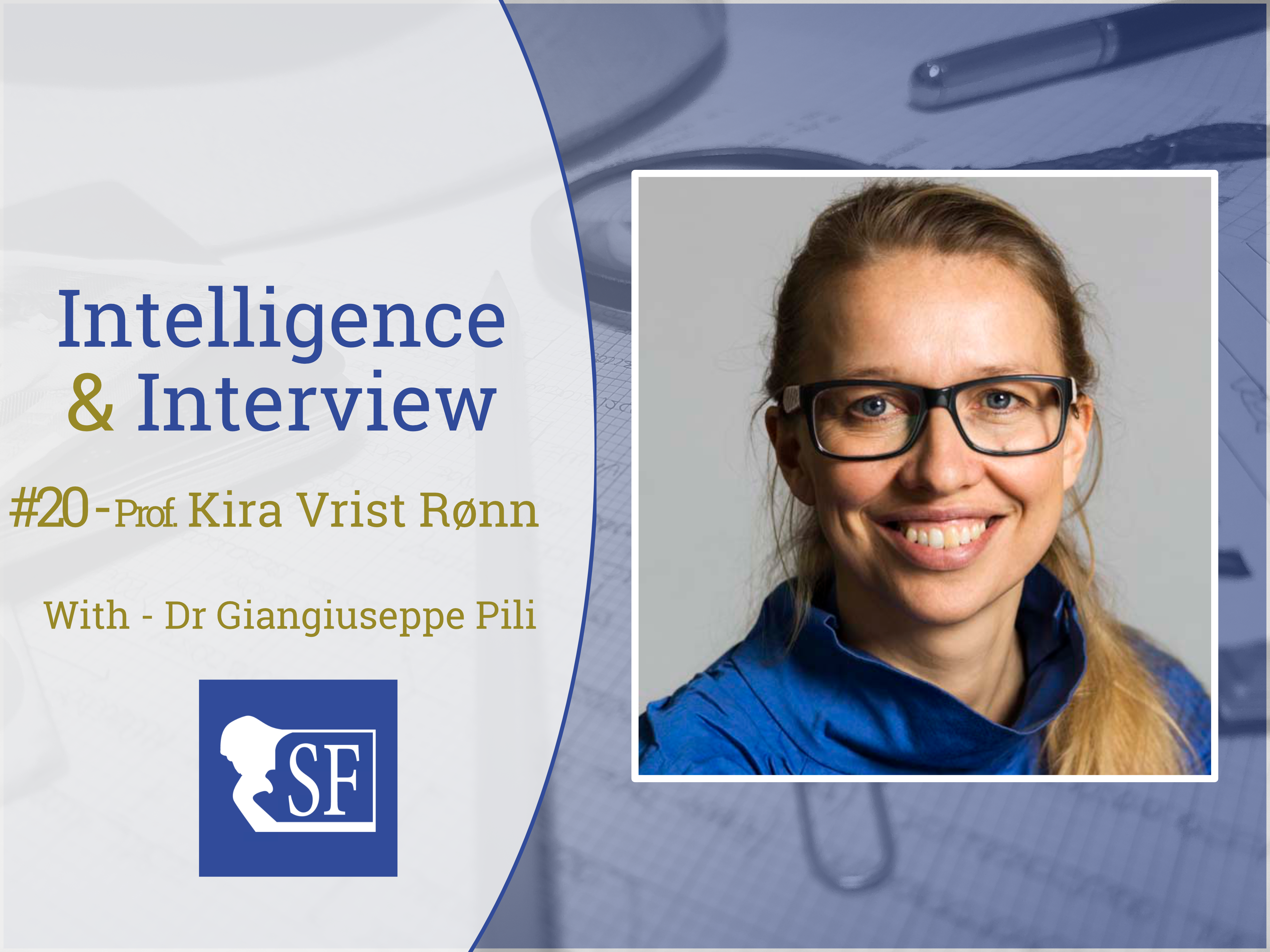Since I started this blog, its motto was “All we need is philosophy… which is love for knowledge”. Naturally, it was a paraphrasis of Beatle’s song “All we need is love”, an over abused mantra. The irony is that the paraphrasis is almost untouched as philosophy was classically defined by Plato as love for knowledge (or wisdom, or whatever it increases human understanding): “all we need is love for knowledge” is what I would have sung if only I was a good songwriter. “All we need is love for knowledge” seems to be a far better and more universal creed, so much so that so great music composers such as the Beatles did not miss it. As it was said in a private conversation by one of the two editors of the esteemed Intelligence and National Security, this special issue was an act of love toward philosophy. As strange it may sound, as unlikely it could be in hour days, when everything is reduced to brutish emotions and useless sarcasm and cynicism, this is the truth.
...all we need is philosophy




